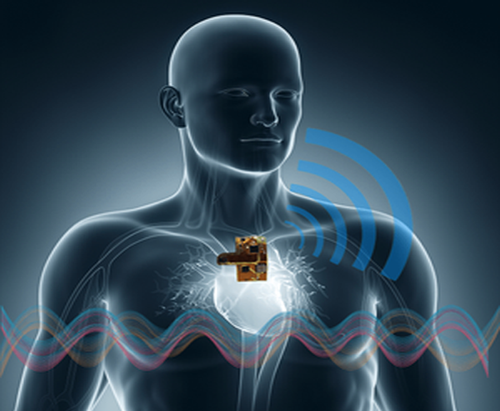Project lead: Soft chest patch to detect sleep apnea
Obstructive sleep apnea (OSA) affects more than 900 million adults globally and can create serious health complications when untreated; however, 80% of cases remain undiagnosed. Critically, current diagnostic techniques are fundamentally limited by low throughputs and high failure rates.
Here, I designed and validated a wireless soft patch with skin-like mechanics that can non-invasively identify sleep apnea from changes in the heart’s mechanical beating and electrical signaling and changes in the pulsatile blood flow.
In preliminary trials with symptomatic and control subjects, the soft device demonstrated excellent ability to detect blood-oxygen saturation, respiratory effort, respiration rate, heart rate, cardiac pre-ejection period and ejection timing, aortic opening mechanics, heart rate variability, and sleep staging. Last, machine learning is used to autodetect apneas and hypopneas with 100% sensitivity and 95% precision in preliminary at-home trials with symptomatic patients, compared to data scored by professionally certified sleep clinicians.
Relevant Papers
At-home wireless monitoring of acute hemodynamic disturbances to detect sleep apnea and sleep stages via a soft sternal patch
Science Advances (2021)
(pdf)
